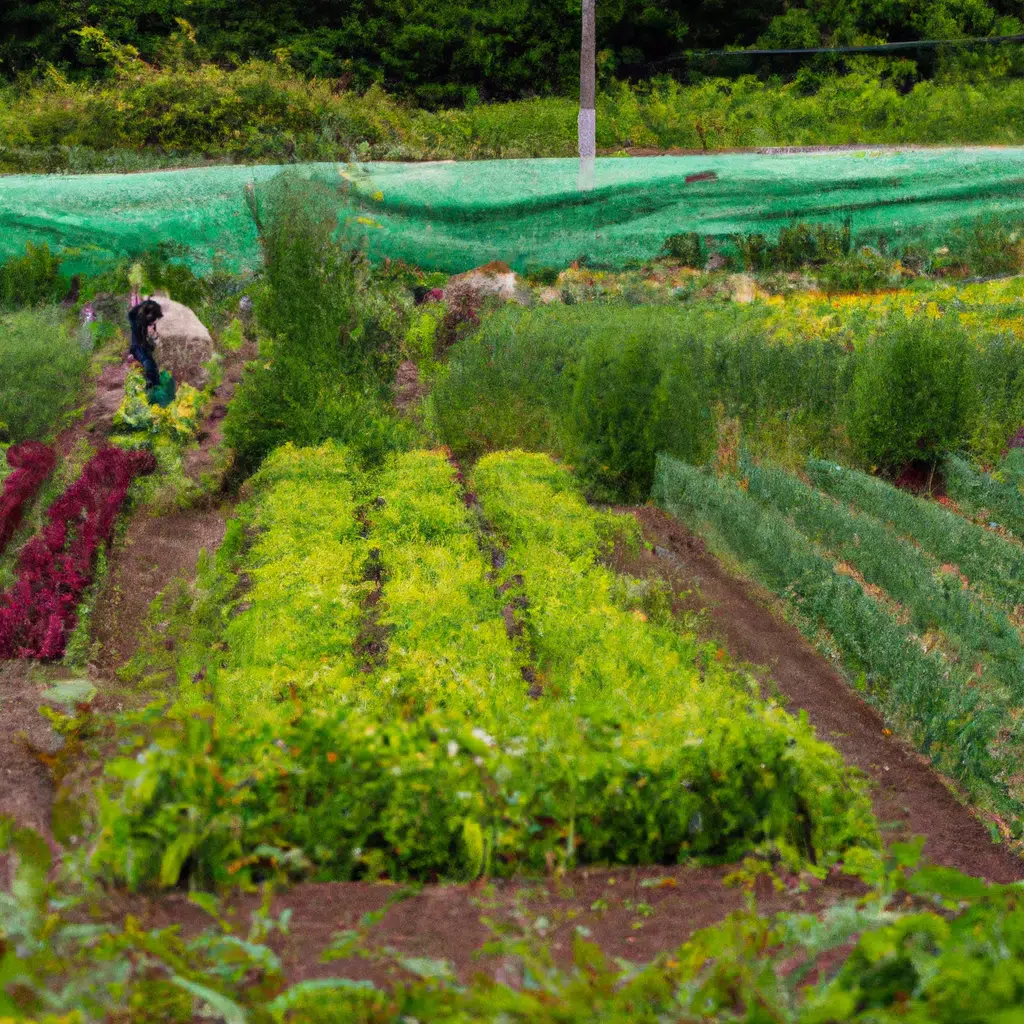Over the past few years, urban farming has become increasingly popular as people become more conscious about where their food comes from and the impact it has on the environment. Urban farming involves growing crops and rearing livestock in urban areas, often in small spaces. This allows city dwellers to access fresh, locally grown produce while reducing the carbon footprint associated with transporting food from rural areas.
One urban farm that is leading the way in innovative farming techniques is Kingsbury Market Garden. Located in London, England, Kingsbury Market Garden is a non-profit community project that provides fresh produce to local residents and educates them about sustainable farming practices.
In this article, we will explore the future of urban farming and the insights we can glean from Kingsbury Market Garden.
The Benefits of Urban Farming
Urban farming has numerous benefits for both individuals and the environment. One of the key benefits is that it reduces the carbon footprint associated with transporting food from rural areas to urban centers. This is because the food is grown and consumed locally, reducing the need for long-distance transportation.
Urban farming also promotes food security by providing fresh, healthy produce to urban communities. This is particularly important in areas where access to fresh produce is limited or where there are food deserts.
In addition, urban farming can have a positive impact on mental health by providing a sense of community and purpose. This is particularly true for community-led projects like Kingsbury Market Garden, which bring people together to work towards a common goal.
Finally, urban farming can help to mitigate the effects of climate change by reducing the amount of greenhouse gas emissions associated with traditional farming practices. This is because urban farms often use sustainable farming techniques like composting, rainwater harvesting, and crop rotation.
Innovative Farming Techniques at Kingsbury Market Garden
Kingsbury Market Garden is a shining example of how urban farming can be done in an innovative and sustainable way. The project was started in 2010 by a group of local residents who were passionate about growing their own food and reducing their carbon footprint.
One of the key features of Kingsbury Market Garden is its use of aquaponics. Aquaponics is a sustainable farming technique that combines aquaculture (raising fish) with hydroponics (growing plants in water). The fish waste provides nutrients for the plants, while the plants filter the water for the fish. This creates a closed-loop system that is both environmentally friendly and highly productive.
In addition to aquaponics, Kingsbury Market Garden also uses other sustainable farming techniques like composting, rainwater harvesting, and companion planting. Companion planting involves planting different crops together in order to improve soil health and deter pests. This reduces the need for chemical pesticides and fertilizers, which can have negative environmental impacts.
Kingsbury Market Garden also places a strong emphasis on community involvement. The project is run by volunteers, and local residents are encouraged to get involved by helping with planting, harvesting, and other tasks. This creates a sense of ownership and community among the participants, which is essential for the long-term success of the project.
The Future of Urban Farming
As urbanization continues to increase around the world, the importance of urban farming will only continue to grow. Urban farming has the potential to provide fresh, healthy produce to urban communities, reduce the carbon footprint associated with food transportation, and promote sustainable farming practices.
In the future, we can expect to see more innovative urban farming techniques like aquaponics, hydroponics, and vertical farming. These techniques allow for greater productivity in smaller spaces and can be used in a variety of urban environments.
We can also expect to see more community-led urban farming projects like Kingsbury Market Garden. These projects provide numerous benefits to the local community, including access to fresh produce, opportunities for social interaction, and education about sustainable farming practices.
Conclusion
Urban farming is a growing trend that has numerous benefits for both individuals and the environment. Kingsbury Market Garden is a shining example of how urban farming can be done in an innovative and sustainable way. By using techniques like aquaponics, composting, and companion planting, Kingsbury Market Garden is able to provide fresh, healthy produce to its local community while reducing its carbon footprint.
As urbanization continues to increase, the importance of urban farming will only continue to grow. By promoting sustainable farming practices and providing access to fresh produce, urban farming has the potential to transform the way we think about food and the environment.


